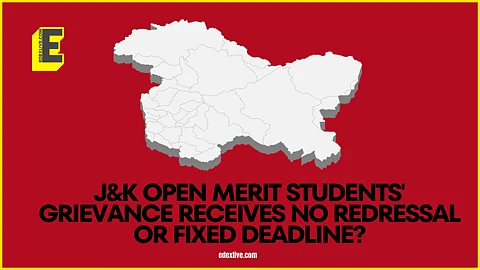

The reservation policy in Jammu and Kashmir has sparked outrage after revelations of regional disparities, as highlighted by Handwara Member of Legislative Assembly (MLA) and Jammu and Kashmir Peoples Conference (JKPC) President Sajad Gani Lone.
Responding to his questions, the government disclosed information in the category certificate issuance, igniting a heated debate.
Furthermore, a Cabinet Sub-Committee, formed on December 10, 2024, to address open merit students’ grievances regarding reservation rules, has no fixed timeline for submitting its report, contrary to a six-month deadline.
This delay, as noted by Nasir Khuehami, National Convenor of the Jammu and Kashmir Students Association, has fueled concerns over the reservation crisis in the state.
Additionally, several regional disparities were highlighted by Lone and put forth in the session, which he took to social media platform X today, Saturday, March 15, to share.
As per the data from April 1, 2023, reveals significant anomalies
- Jammu dominates Scheduled Caste (SC) certificates with 67,112 (100%), while Kashmir issued none.
- For Scheduled Tribes (ST), Jammu accounts for 4,59,493 (85.3%) compared to Kashmir’s 79,813 (14.7%).
- Economically Weaker Sections (EWS) certificates were issued for Jammu, with 27,420 (92.3%) against Kashmir’s 2,273 (7.7%).
- Among Actual Line of Control (ALC) certificates, Jammu leads with 268 (94.3%) versus Kashmir’s 16 (5.7%),
- International Border (IB) certificates are exclusively Jammu’s 551 (100%), whereas for Kashmir, it's nil.
- Residents of Backward Areas (RBA) show close figures, Jammu with 1,379 (52.8%) and Kashmir with 1,229 (48.2%)
The overall figures suggested that Kashmir lagged.
Lone labelled these findings a “shocker,” stating that the reservation system disproportionately disadvantages the Kashmiri-speaking population and ST/EWS groups in Kashmir.
He noted that ST applicants from Kashmir constitute a mere 15% of the total ST pool, indicating a net loss.
The MLA, via his post, conveyed that he has planned a press conference to address these issues, demanding urgent reforms.
The inequity is palpable, and as tensions rise with the reservation policy in the Union Territory, the government is failing to address what Kashmiris are seeing as a rigged reservation framework. Open merit students in Kashmir are also bearing the brunt of systemic imbalance as they fail to procure government seats, jobs, and other opportunities in the state.
